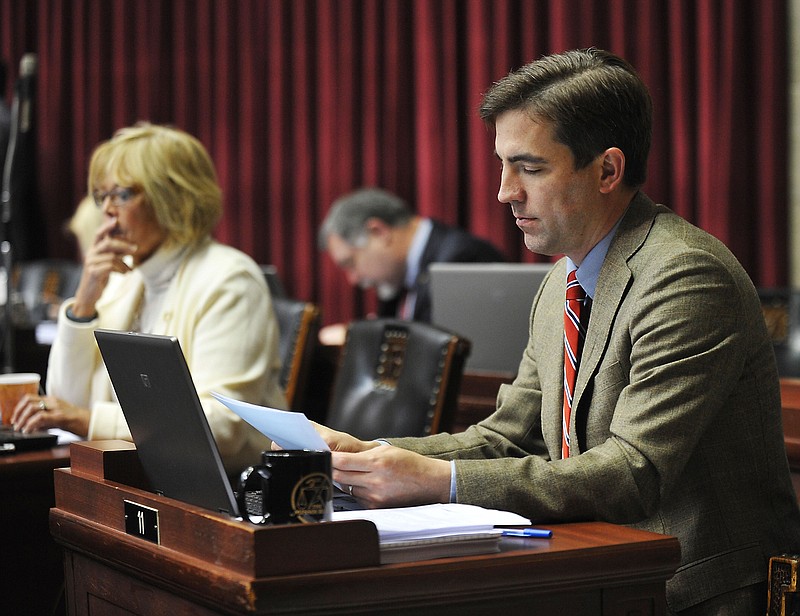If Gov. Jay Nixon agrees, Missouri again will have a sentencing option for teenaged killers convicted of first-degree murder.
"We will finally, after four years, have a constitutionally viable sentencing option in our statute, so we will no longer be leaving victims, their families and, frankly, the accused just hanging in limbo," Sen. Bob Dixon, R-Springfield, told colleagues Thursday afternoon.
The House passed the bill by a 145-1 margin Thursday morning. The Senate followed with a 32-0 vote.
Under current state law, when a teen under 18 is convicted of first-degree murder, the court has two sentencing options - the death penalty or life in prison without parole.
But the U.S. Supreme Court has ruled both are unconstitutional when applied to juveniles.
In 2005, the federal high court said execution can't be applied to juvenile killers.
And in 2012, the court ruled mandatory sentences of life without the possibility of parole also are unconstitutional for juvenile offenders convicted of murder and some other serious crimes.
That left many Missouri prosecutors charging teens with second-degree murder, Dixon said, even if the facts of the case support a first-degree murder charge - and would be a first-degree charge if the accused were an adult.
The Supreme Court didn't prohibit life-without-parole sentences for young teen criminals - as long as the judge has at least one other sentencing option.
Dixon noted Thursday the original Senate-passed bill had offered two sentencing options for a judge, depending on the convicted teen's age - life in prison without parole and a 50-year prison sentence if the accused was 16-18 when the crime was committed or a minimum of 35 years in prison for those under 16 at the time of the crime.
The compromise version approved Thursday provides three sentencing options rather than two, he said:
Life in prison, without a chance for parole.
Life in prison with a chance for parole.
A sentence of 30-40 years in prison.
Missouri law currently holds anybody participating in a crime can be found guilty of all parts of the crime - even if they only acted as a "lookout" as others committed more serious crimes.
Dixon noted the bill going to Nixon specifies the participant who was "not actually inflicting injuries could not be sentenced to life in prison without parole. It would only be the person who actually did the injuries and caused the death."
The House made a number of changes to the Senate-passed bill.
And, Dixon - who chairs the Senate's Judiciary committee - said he and House Judiciary committee Chairman Robert Cornejo, R-St. Peters, worked out the final details this week.
"It looked very much like we were not going to get to a compromise before he and I sat down," Dixon told Sen. Scott Sifton, D-Affton. "The groups involved had tried to work out their differences.
"But they couldn't."
He said negotiating directly with Cornejo was an attempt by the two committee chairmen to avoid a more formal conference committee - especially with the limited time before tonight's 6 p.m. deadline.
"This is an excellent compromise," Dixon told the Senate. "Neither side is totally happy, but I think this is an excellent win.
"We got a lot more than we were forced to give up."
When the Senate passed the bill April 21, it contained a number of amendments the House stripped from the bill and added to a different crimes-related bill Dixon also sponsored.
"It is very important that we send a bill (to the governor) with a very 'clean' title that cannot be challenged in court," he explained, "because that could be raised as a defense in a criminal trial."
Senators also unanimously approved an emergency clause so, if Nixon signs the bill, it would go into effect as soon as he signed it.

